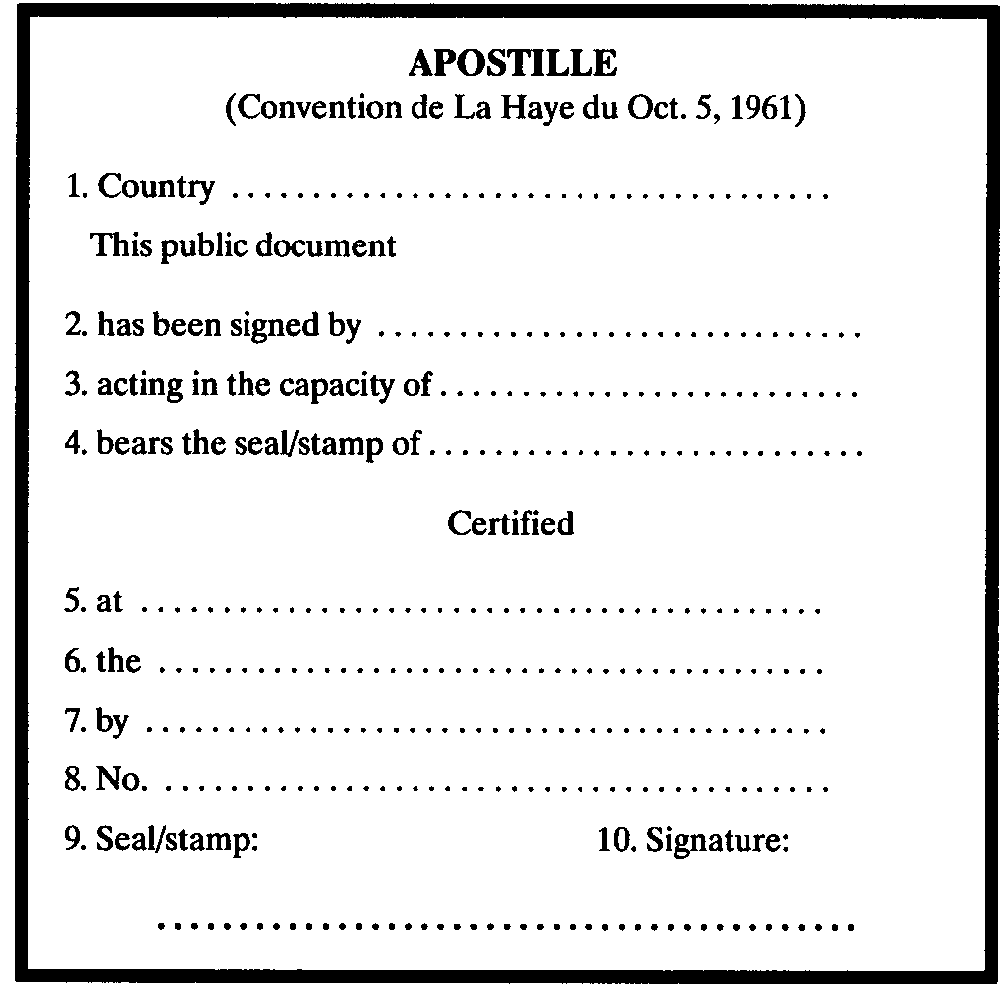Notice regarding Section 508 of the Workforce Investment Act of 1998. Section 508 of the Workforce Investment Act of 1998 requires all United States Federal Agencies with websites to make them accessible to individuals with disabilities. At this time, the MPEP files below do not meet all standards for web accessibility. Until changes can be made to make them fully accessible to individuals with disabilities, the USPTO is providing access assistance via telephone. MPEP Interim Accessibility Contact: 571-272-8813.
602.04(a) Foreign Executed Oath Is Ribboned to Other Application Papers [R-7] - 600 Parts, Form, and Content of Application
602.04(a) Foreign Executed Oath Is Ribboned to Other Application Papers [R-7]
37 CFR 1.66 Officers authorized to administer oaths.
*****
(b) When the oath is taken before an officer in a country foreign to the United States, any accompanying application papers, except the drawings, must be attached together with the oath and a ribbon passed one or more times through all the sheets of the application, except the drawings, and the ends of said ribbon brought together under the seal before the latter is affixed and impressed, or each sheet must be impressed with the official seal of the officer before whom the oath is taken. If the papers as filed are not properly ribboned or each sheet impressed with the seal, the case will be accepted for examination, but before it is allowed, duplicate papers, prepared in compliance with the foregoing sentence, must be filed.
Where the papers are not properly ribboned, use form paragraphs 6.05 (reproduced in MPEP § 602.03) and 6.05.14.
¶ 6.05.14 No Ribbon Properly AttachedIt does not have a ribbon properly attached.
Examiner Note:
This paragraph applies only to foreign executed oaths and must be preceded by form paragraph 6.05.
U.S. ACCESSION TO HAGUE CONVENTION ABOLISHING THE REQUIREMENT OF LEGALIZATION FOR FOREIGN PUBLIC DOCUMENTS
On Oct. 15, 1981, the Hague "Convention Abolishing the Requirement of Legalization for Foreign Public Documents" entered into force between the United States and 28 foreign countries as parties to the Convention. Subsequently, additional countries have become parties to the Convention. The Convention applies to any document submitted to the United States Patent and Trademark Office for filing or recording, which is sworn to or acknowledged by a notary public in any one of the member countries. The Convention abolishes the certification of the authority of the notary public in a member country by a diplomatic or consular officer of the United States and substitutes certification by a special certificate, or apostille, executed by an officer of the member country. Accordingly, the Office will accept for filing or recording a document sworn to or acknowledged before a notary public in a member country if the document bears, or has appended to it, an apostille certifying the notary's authority. The requirement for a diplomatic or consular certificate, specified in 37 CFR 1.66, will not apply to a document sworn to or acknowledged before a notary public in a member country if an apostille is used.
**A list of the current member countries that are parties to the Hague Convention can be obtained from the Internet web site of the Hague Conference on Private International Law at **>http://www.hcch.net/index_en.php by selecting "Apostille Section" under "International Legal Co-operation and Litigation" and then selecting "Status table of the Apostille Convention" under "Contracting States."<
The Convention prescribes the following form for the apostille:
Model of Certificate
The certificate will be in the form of a square with sides at least 9 centimeters long.

Note that a declaration in lieu of application oath ( 37 CFR 1.68) need not be ribboned to the other papers. It must, however, be maintained together therewith.